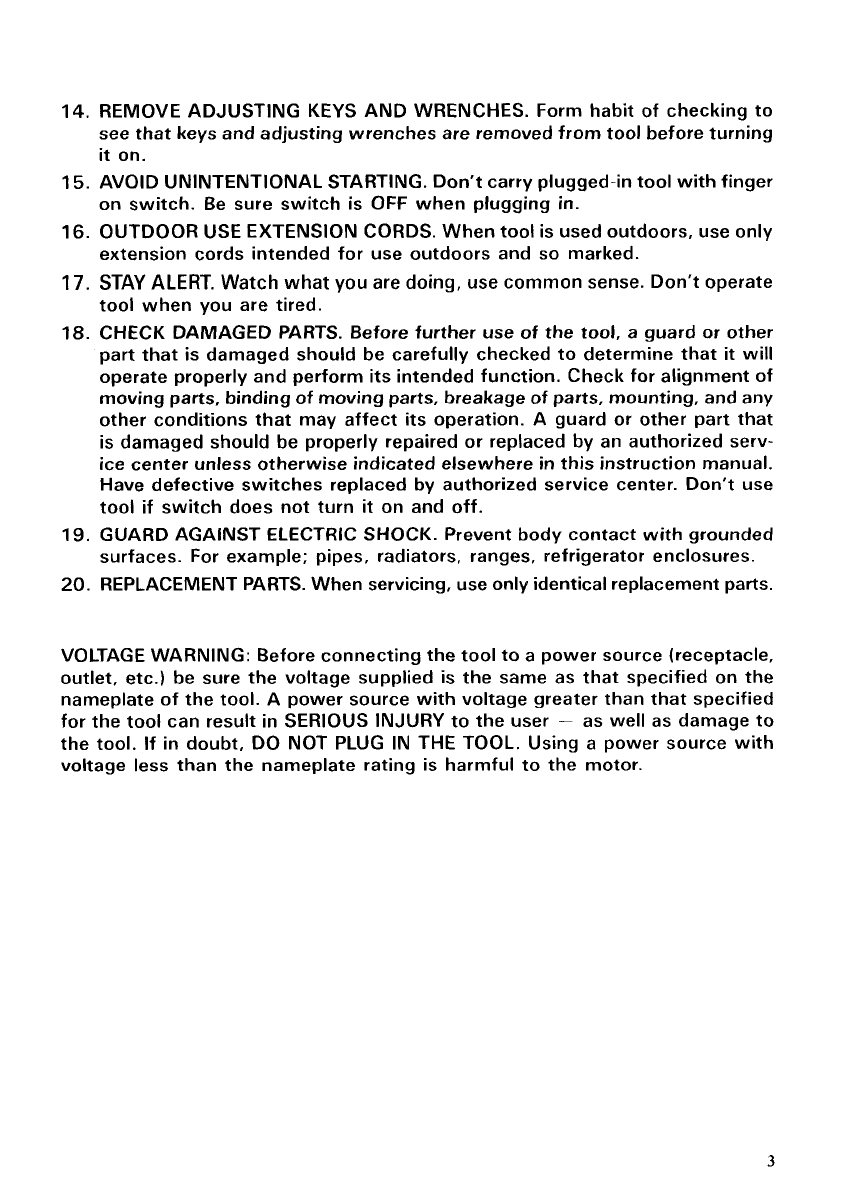
14.
REMOVE ADJUSTING KEYS AND WRENCHES. Form habit of checking to
see that keys and adjusting wrenches are removed from tool before turning
it
on.
15.
AVOID UNINTENTIONAL STARTING. Don't carry plugged-in tool
with
finger
on switch. Be sure switch is
OFF
when plugging
in.
16.
OUTDOOR USE EXTENSION CORDS. When tool is used outdoors, use only
extension cords intended for use outdoors and
so
marked.
17.
STAY
ALERT.
Watch
what
you
are doing, use common sense. Don't operate
tool when you are tired.
18.
CHECK DAMAGED PARTS. Before further use
of
the tool, a guard or other
part that is damaged should be carefully checked to determine that
it
will
operate properly and perform its intended function. Check for alignment of
moving parts,
binding
of moving parts, breakage of parts, mounting, and any
other conditions that may affect its operation. A guard or other part that
is damaged should be properly repaired or replaced
by
an authorized serv-
ice center unless otherwise indicated elsewhere
in
this instruction manual.
Have defective switches replaced by authorized service center. Don't use
tool if switch does not turn
it
on and off.
19.
GUARD AGAINST ELECTRIC SHOCK. Prevent body contact
with
grounded
surfaces. For example; pipes, radiators, ranges, refrigerator enclosures.
20.
REPLACEMENT PARTS. When servicing, use only identical replacement parts.
VOLTAGE WARNING: Before connecting the tool to a power source (receptacle,
outlet, etc.) be sure the voltage supplied is the same as that specified on the
nameplate of the tool. A power source
with
voltage greater than that specified
for the tool can result in SERIOUS INJURY to the user
-
as well as damage to
the tool. If
in
doubt,
DO
NOT PLUG IN THE TOOL. Using a power source with
voltage less than the nameplate rating is harmful to the motor.
3


















